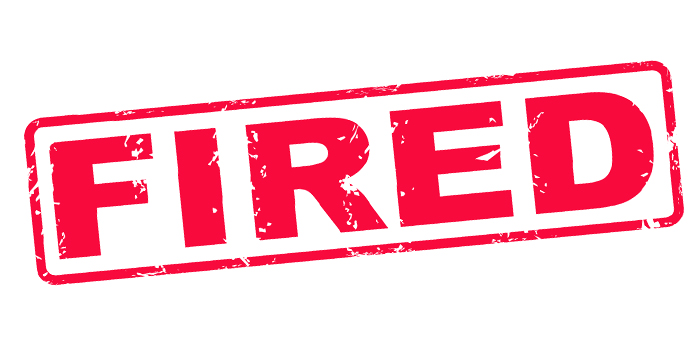
I used to spend most of my day with personal training clients. A good session could put me in a great mood. A bad session sat on my mind for days.
In 21 years of coaching, I've fired three clients. I've learned to set clear expectations in advance ("cancel by 8am, or you'll be charged") lean on established policies ("We don't give discounts") and be consistent above all else ("Our session starts at 11:30; if you arrive late, we can do 55 minutes of work.") But sometimes it's just not going to work out.
In 2010, I had a client named Georgia.
Georgia had some depression issues. Exercise helped her more than medication. But occasionally, she'd have a breakdown, and cancel at the last minute. Or drive to the gym and sit in the car for an hour before coming inside. She was late, and usually crying, and looking to me for consolation. She often wanted to "hug it out." She would melt down if I told her she couldn't start her session late.
For over a year, I thought it was my job to accommodate her. She was my client; I was being paid to "treat" her condition. Right?
Except that her tardiness made everyone else late.
And I absorbed her mood.
And I dreaded our sessions to the point of distraction.
When I finally realized that her behavior was affecting other clients, I vowed to "fire" her. I handled it badly, and everyone felt horrible. But I've learned some hard lessons since.
First, it's your responsibility to fire a client when:
- They can't stick to the same rules as everyone else. It's just not fair to your other clients to be inconsistent with your rules.
- You're distracted before a session and exhausted (or angry) after. Georgia's appointments were always on Tuesday morning; I'd spend Monday dreading them, and Tuesday afternoons distracted by them.
- They exhibit behavior that infringes on another client's experience.
- Their behavior requires more time and energy than you can give EVERY client. When in doubt: consistency is more important than anything else. Ask yourself: Can I do this extra thing for EVERYONE? If not, the client has to conform or go.
How to do it:
- First, have a good reason. For me, the ONLY reason to fire a client is if their presence is hurting the experience of someone else.
- Be tactful. Save their feelings, but be absolutely clear. "Georgia, I can't give you the service you need to accomplish your goals." (Bad example: "I don't think this is working out." This sounds like you want her to talk you out of it. You don't.)
- Hand them off to someone else instead of leaving them stranded.
- Remove the pain of choice. "I think you should go; do you want me to call another coach for you?" That's painful. They'll feel like a loser. Instead, try this: "Georgia, I don't think I can give you the best possible service for your goals, but I have a colleague who can. I transferred the balance of your account to him this morning; he's attached here, and I filled him in on your background. Tim, can you take it from here?"
- Once the door is closed, keep it closed. The client's feelings will still probably be hurt. But if you allow them to draw out the conversation, it will just hurt longer - for everyone. Your email should start and end the 'firing' conversation.
Hinting doesn't help. Treating someone badly so they'll quit...that's sixth-grade stuff. If you can't provide a client with your BEST because of their behavior, it's your DUTY to fire them.
You Teach Them How to Treat You
Chris Cooper is the author of Two-Brain Business, Two-Brain 2.0 and Help First. A former powerlifter, Cooper opened Catalyst Fitness in 2005 after a decade in the fitness industry. The gym almost bankrupted him. When he realized that being a good coach didn’t make him a good business owner, he found a mentor and began his REAL education. He now owns two gyms (and three other companies, as well as a few buildings) in Sault Ste. Marie, Ontario. Since 2010, Cooper has published over 1000 free blog posts. His new site is twobrainbusiness.com, and his podcast is TwoBrainRadio.











3 Comments